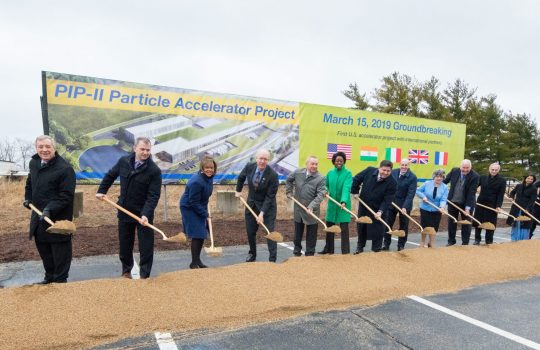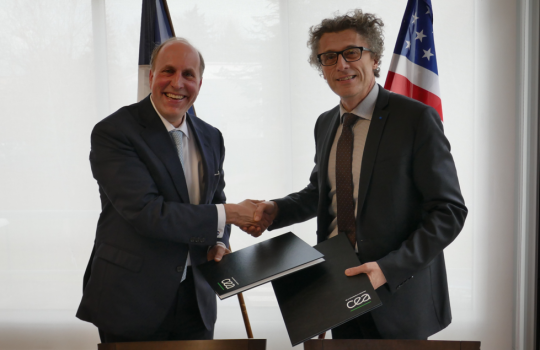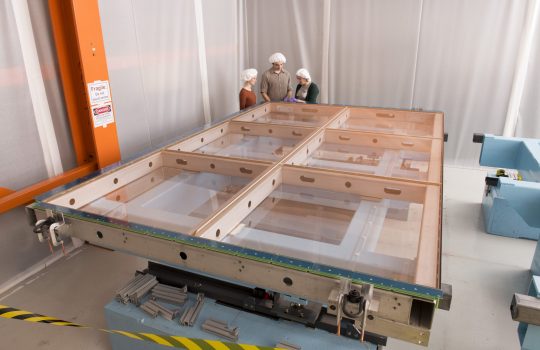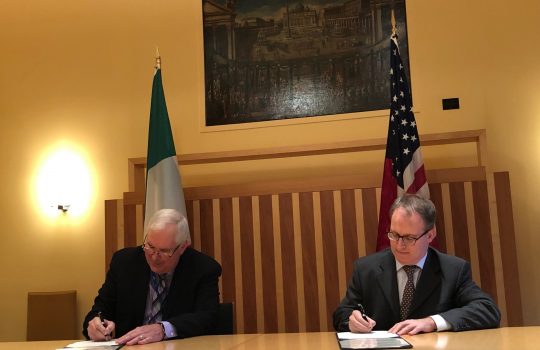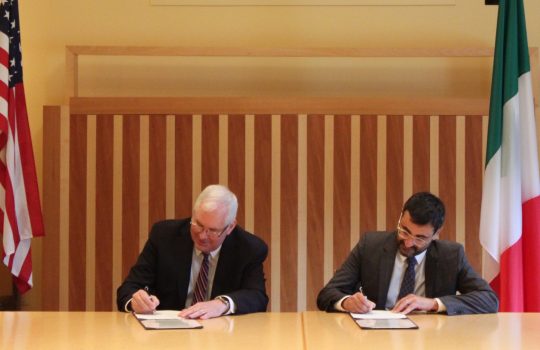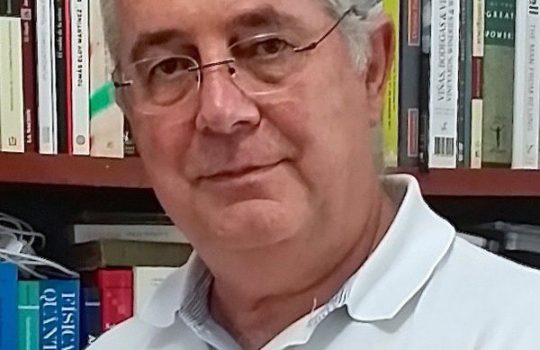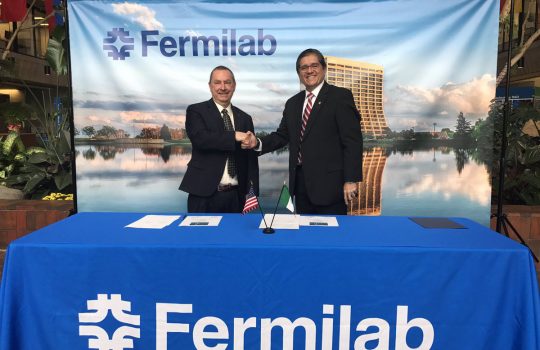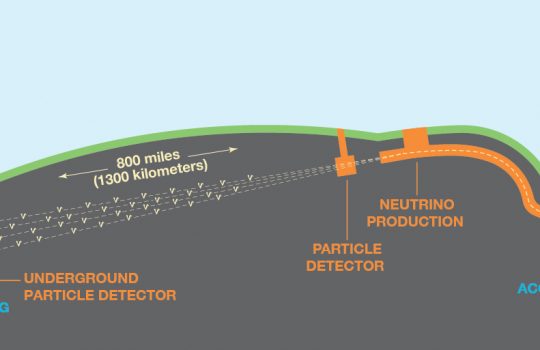In photos: Fermilab breaks ground on PIP-II accelerator project
- accelerator
- accelerator technology
- international engagement
- international relations
- internationality
- PIP-II
- VIP
On March 15, Fermilab broke ground on PIP-II, a major new particle accelerator project at Fermilab. Dignitaries from the United States and international partners celebrated the start of the project at the groundbreaking ceremony. The PIP-II accelerator will power the long-term future of the laboratory’s research program, including the international Deep Underground Neutrino Experiment and a suite of on-site experiments.

